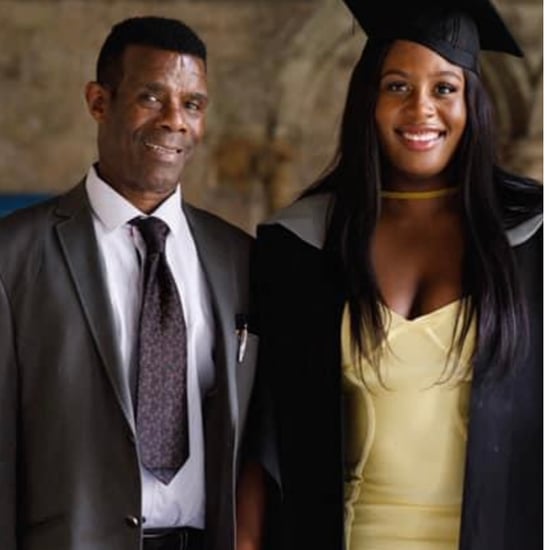Why Parents Should Go to All of Their Kid's Performances
Parents, Showing Up to Every Performance Means the World to Your Kids

I was never the kid who loved getting up on stage. Sure, I played pretend and had fun talking to myself. I put on funny voices and created characters. Maybe I occasionally acted like a diva. But I was never the kid who regularly attended dance or singing classes. In fact, whenever I did try to go to those kinds of classes, I mostly ended up crying because it wasn't fun for me. It was strict and disciplined and felt too much like school.
However, my parents were creative in the sense that they enjoyed performing — my mom even taught belly dancing part-time. But we weren't a stage-y family, and they didn't pursue their artistic passions as a full-time job or career or expect me to do the same.
I first remember my mom coming to a performance I was in when I was 6. For my class's talent show, my friends and I were performing the Spice Girls. I can vividly remember breaking out Mel B's signature dance move: knees knocking together when singing "zigazig ah!" and seeing all our moms laughing together.
That unconditional support meant the world to me.
And from then on, my parents showed up to every single performance I was in. From my class's Christmas show (where I actually didn't have a role but sang in the choir) to a rare chance for my brother and I to sing with our elementary school choir at the Royal Albert Hall, I can remember them in the audience.
These types of performances were intermittent, but they were fun one-off events. It was a given that even if one parent couldn't take the time off work to be there, the other would be in the audience, proud and supportive.
It wasn't until I got to high school and began to study drama more seriously that I started to become aware of the sacrifices that my parents made to ensure that they could come to my shows. My school didn't do productions; these were no big-budget performances. The live performances I was in were really only there to serve as a practical part of our exams in the class. But every time, they showed up.
I felt very fortunate. Not all of my peers had family who could come to every performance due to work or family commitments. Some of my friends didn't have family who supported their decision to study drama, which they saw as a soft subject, a glorified playtime. But my parents never judged me or made me feel like I was making a silly decision — and that unconditional support meant the world to me.
There was no pressure from my parents. They didn't have to nag me to learn my lines or get up in time for rehearsals; they didn't pressure me to get top marks. Their only wish was for me to do well for myself and to enjoy myself. And because I was so passionate about it, that was easy. They let me get on with it and just made sure they were first in line to reserve seats in the audience.
They always found a way to make me smile, wish me luck, and urge me to enjoy myself.
As I was performing, I would try to spot them in the crowd (subtly, of course!), and it was only when I saw them that I felt settled. Their presence was all I needed to get on with the show. I definitely took it for granted that they would always be there. I knew preparing for any show took time, effort, and dedication. But looking back, I can see that being a member of the audience took much of the same. Both of my parents worked full-time, but still Mom would help me source my costume, picking up items on her lunch break or after work. My dad worked in London and would often work through lunch or make up the time so he could rush straight to the school when he got off and support me. It didn't matter how much stage time I had, that these were small-budget shows, or even if we were having our own teenager vs. parents drama at home. My parents would be there. And before shows, I received silly, loving text messages of support. They always found a way to make me smile, wish me luck, and urge me to enjoy myself.
I'd be lying if I said it wasn't great to hear that they genuinely thought I was talented and were very proud of me. But what mattered the most, if not more, was that it wasn't just about offering words of encouragement — it was about them showing up, every time, and being a familiar face in the crowd. It was having someone genuinely believe in me, believe that what I did mattered and that I mattered as a person and not just as a performer.
At the time, they might not have understood the process of creating a show from scratch, the challenge of learning lines or remembering choreography. I practiced privately in my room or rehearsed at school, and my parents only saw the final result. So to my mom and dad's eyes, the performances probably looked effortless, natural. Luckily, that's how their unconditional love felt to me.








